There will be no large gatherings of children in the hundreds, playing games, taking home presents and snacking on sweet bread and candies in celebration of Reyes Magos — Three Kings Day — this holiday season.
Natalia Urquiza, founder of La Tiendita Magazine, is all smiles as she scrolls through photographs and videos on her phone. Every image depicts joyful scenes of the 300 children and parents who attended her Three Kings Day event last Jan. 6.

But her smile drops to a somber expression as she recounts the challenges of the holiday this year. The spread of COVID-19 in Tyler has made this type of large gathering unsafe.
Going into the holiday season, the levels of COVID-19 in Smith Co. range in the “substantial community spread” category, according to the Northeast Texas Public Health District. Because of this, NETHealth and the CDC are encouraging residents to limit holiday celebrations to more intimate, family household-only affairs.
While the cancellation of the public party for Three Kings Day is disappointing for Urquiza, she is looking forward to each ensuing holiday on the 2021 calendar, in hopes that it will be safe enough for large gatherings in close spaces.
After all, hosting celebrations of all sorts is Urquiza’s passion. Her community events in 2020 included El Día de la Madre, Mother’s Day; spring break; a fall festival; and El Día de los Muertos, Day of the Dead.
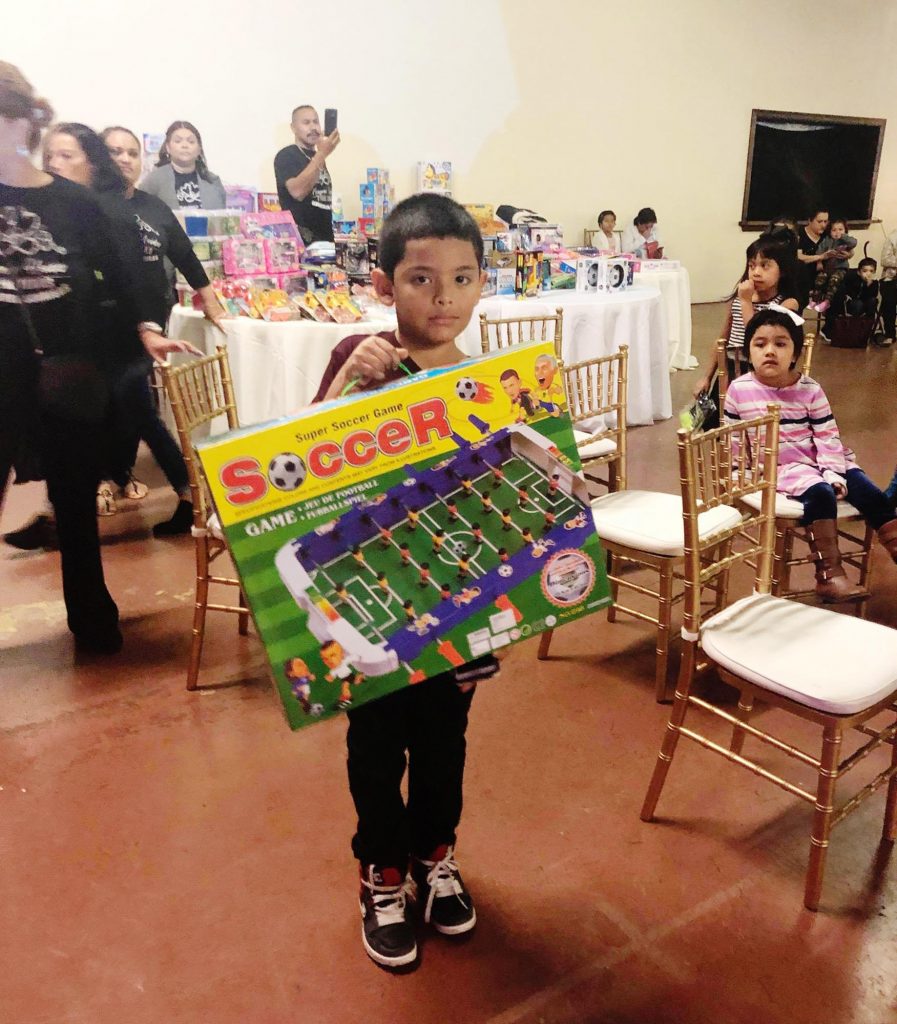
Much like a Christmas angel to Tyler’s Hispanic community, Urquiza brings good news to those in need of spirits lifted. With her eyes and ears turned toward neighbors and strangers, especially those stuck in stressful working-to-survive routines, Urquiza has routinely organized joyful holiday events. Participants can look forward to singing, dancing and free food on these extraordinary days.
It was her own ears that led Urquiza on a path focused on fostering community unity and philanthropy.
Becoming a philanthropist
Before following her parents and sisters to the United States, Urquiza was a child growing up in Mexico City and suffered from constant earaches. After a bout with a high fever, she was diagnosed with meningitis and found to have tumors in her ears.
As time passed, she lost more and more of her hearing. By 2006 she experienced deafness in both ears. She needed a surgery that would cost her more than $15,000.
“When someone needs the money, I know the feeling,” Urquiza said in Spanish through her friend and interpreter Patricia Ramirez. Ramirez is a close friend in charge of donations in Urquiza’s charity organization, Corazones Unidos.
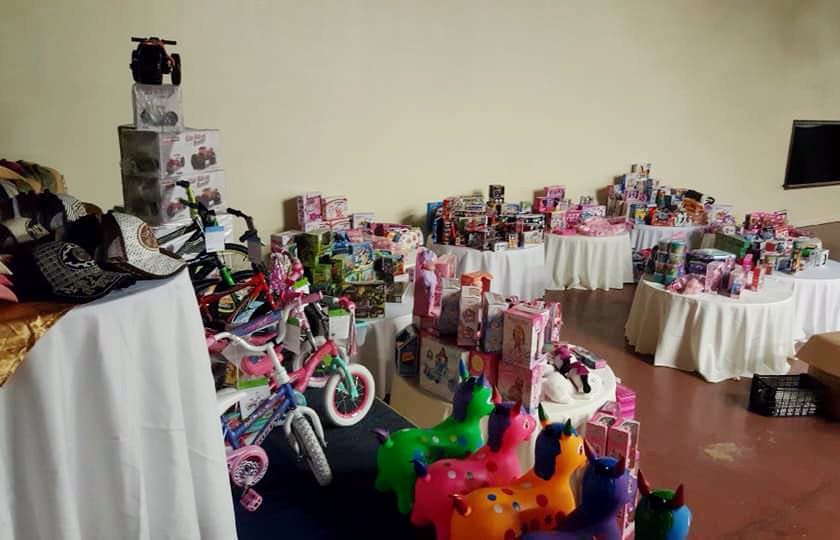
📷courtesy La Tiendita Magazine
Urquiza’s mother raised the money for her surgery through making and selling steak tacos each day to her 80 coworkers at a rose nursery, and this inspired her to raise money for others facing large medical bills and daunting diagnoses.
“She woke up at three or four in the morning,” Urquiza said, “We made the tacos for lunch. For five years, the workers paid $5 for three tacos. She would work a lot of overtime, too, to save money for my surgery.”
Urquiza realized that she had the power herself to raise money for others in similar situations coupled by a desire in her heart to bring cheer to people’s lives.
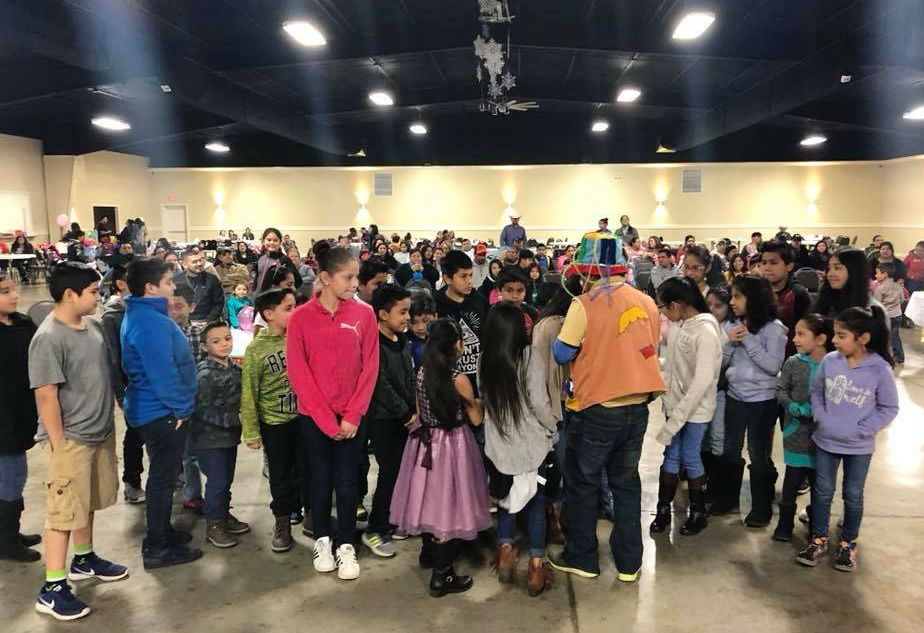
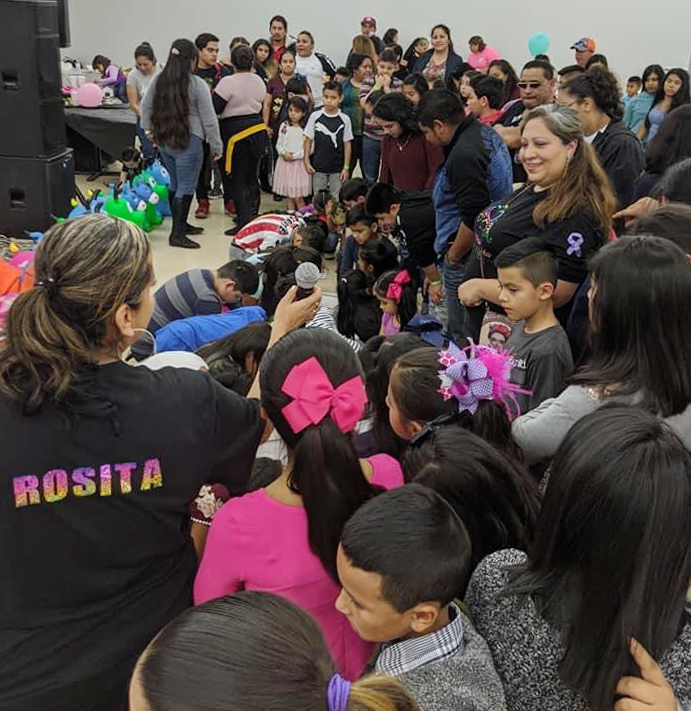
📷 courtesy La Tiendita Magazine
Through Corazones Unidos — United Hearts — she hosts kermes, Catholic bazaar fundraisers that sell goods to help pay for surgeries and funerals.
“Our goal is to help those who do not have the means to pay for surgery or cancer treatment or any disease. We have helped people from Mexico, Venezuela, Honduras, Dallas, Houston, Henderson, Van, Kilgore, Gilmer, Rusk, Nacogdoches and many parts with the help of God and the whole community who are always willing to donate.”
Urquiza’s La Tiendita Magazine serves as the information point to advertise the stories of those in need and report successful kermes and the businesses that donated services and money.
Community donations are key to help the needy at Christmastime, and last Three Kings Day, Urquiza gave away 400 toys with monetary donations she collected from local businesses.
Three Kings Day traditions
Across the world from Belgium to Portugal, Christians celebrate the discovery of the baby Jesus by the Reyes Magos, also called Magi or Three Wise Men, on Jan. 6. The holiday is known by other names, including Epiphany and Twelfth Night.
In Spain, parades take place Jan. 5, the night before presents arrive. In the Bible story, the wise men are said to be traveling foreigners who found the baby Jesus by the guiding light of the star of Bethlehem in the east and brought him gifts of gold, frankincense and myrrh.
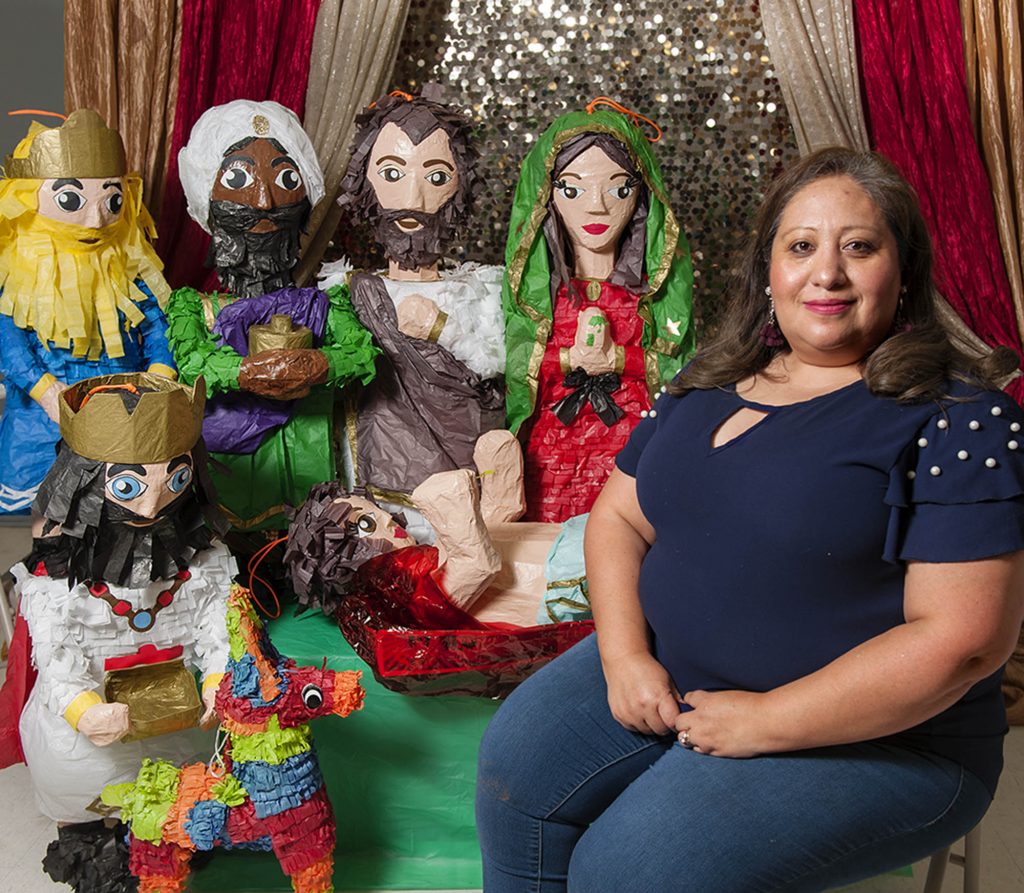
For Latinos celebrating Reyes Magos, Christmas Eve and Christmas Day are focused more on the religious remembrance of the birth of Jesus Christ. Extended families come together to view nativity scenes depicting Joseph, Mary, Jesus, the kings and sometimes accompanying barnyard animals, and to enjoy Christmas carols.
“In Mexico, we don’t wait for Santa, we wait for the kings to come and bring us presents,” Ramirez said. She grew up in Guanajuato, Mexico.
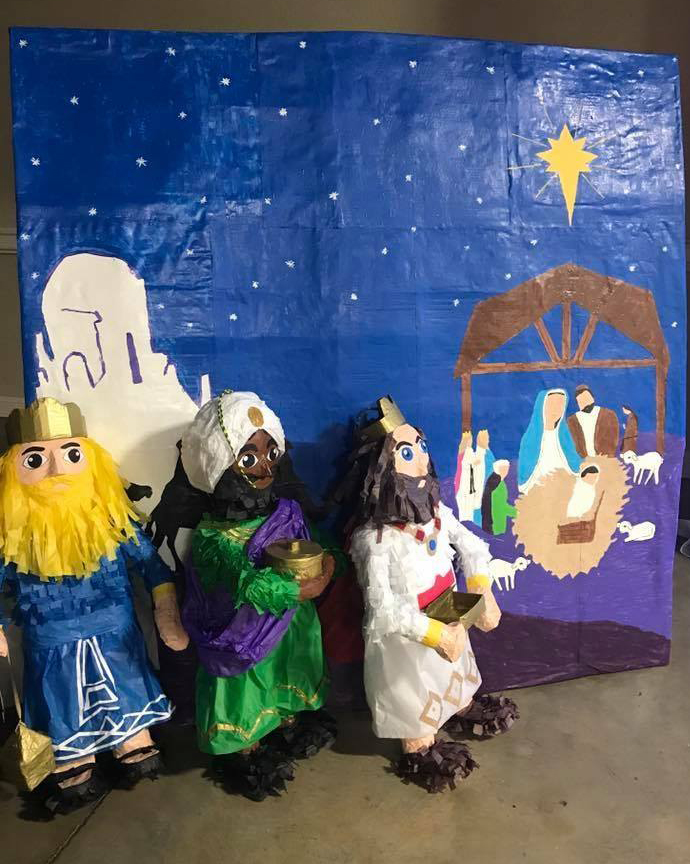
On the eve of Jan. 5 , children write letters asking the three kings — Melchor, Gaspar and Baltasar — for presents, and they leave the letters in their shoes outside of their bedroom doors. In the morning, the letters are replaced with presents as well as sweet breads, candies and oranges.
Urquiza and Ramirez will celebrate Reyes Magos at their homes with their immediate families. Urquiza’s children, now 20 and 22, still write their letters and are still greeted by presents on their shoes.
Rosca de reyes, or king’s wreath
Rosca de reyes, three kings bread, is a staple of the holiday. The sweet bread is round or oval shaped and decorated with sweet paste in the colors of the Mexican flag, topped with different fruits such as dried pineapples and peaches. A rosca de reyes contains at least one and sometimes multiple figurines of the baby Jesus hidden inside.
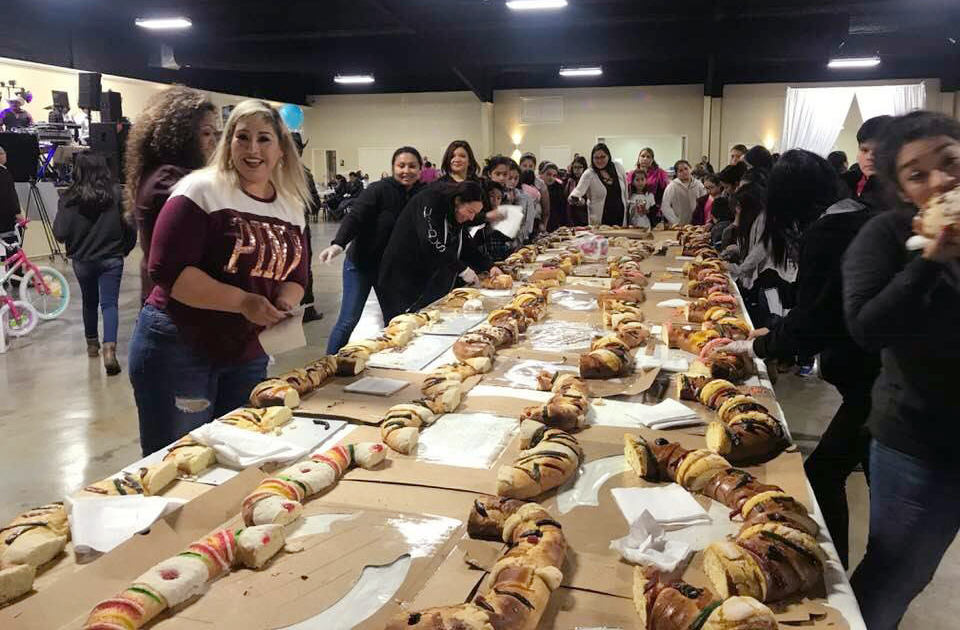
📷 courtesy La Tiendita Magazine
The toy baby in the bread represents the story of Matthew 2:12-15. The story says that after the magi left, an angel appeared to Joseph in a dream warning him to hide the baby from King Herod because the king wanted the baby dead. Because of this, the family fled to Egypt until the time of Herod’s death.
Family members try to choose their slice of rosca de reyes wisely. Custom dictates that whoever finds the baby Jesus in their slice of rosca de reyes is then responsible for providing tamales for the party on the Feb. 2 observance of Candlemas, a holy Christian day.
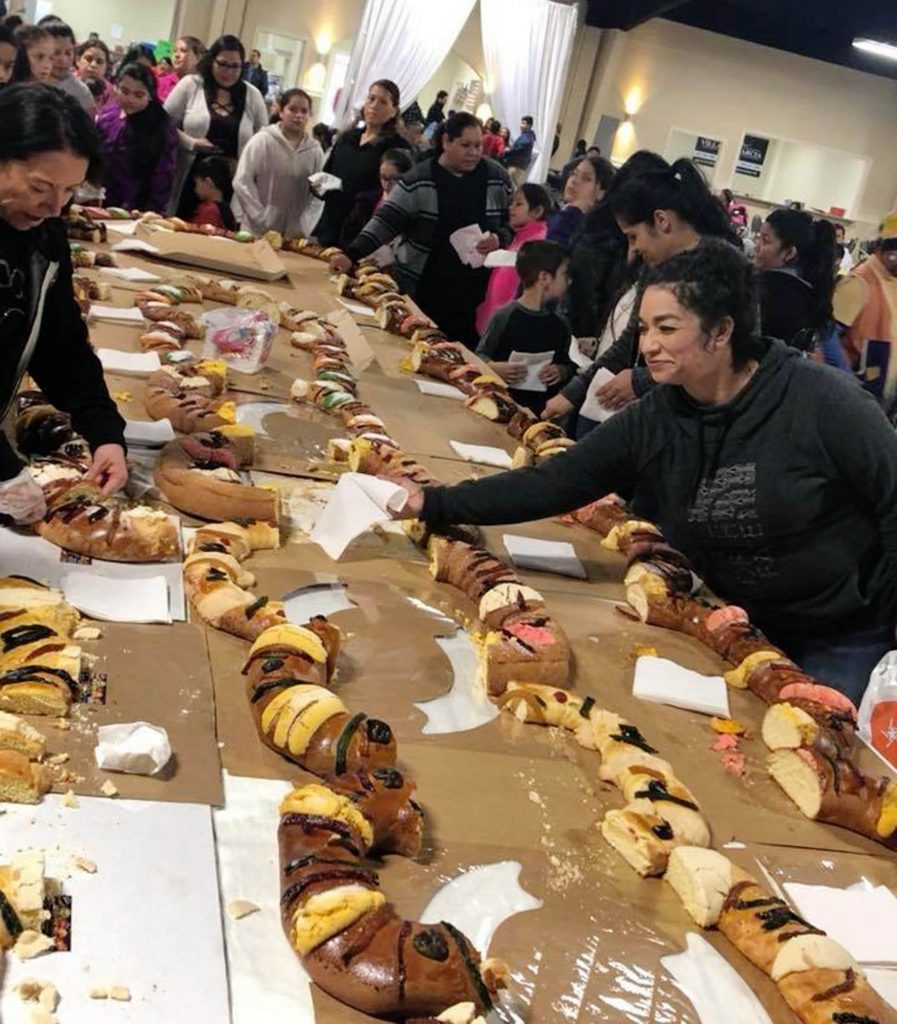
Candlemas marks the end of the Christmas season, when families take down the last of their decorations and put away the nativity scene for the next year, if it hasn’t been done already.
Yesenia Garcia, who co-owns the Mexican bakery Panaderia Nuevo Leon in Tyler with her father and two sisters, thinks that despite the pandemic, the rosca de reyes tradition will continue.
At Panaderia Nuevo Leon, the bakers start the process of making rosca de reyes several days before the holiday.
“It takes hours to make, and you have to make it big,” Garcia said, “All the detailing in the paste and fruit takes time.”
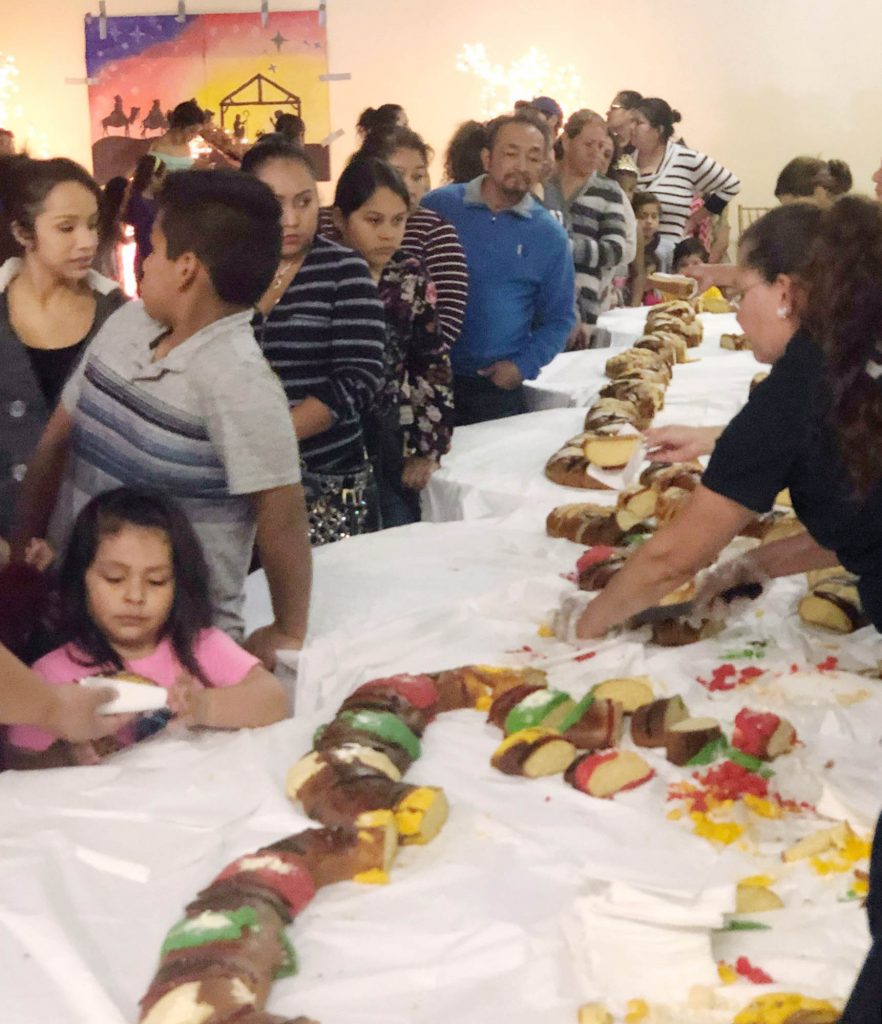
She says nowadays the breads come in multiple sizes to accommodate large gatherings, and multiple baby figurines are hidden inside.
This means multiple people become Candlemas party organizers, and the burden is not placed solely on one person who may or may not even know how to make tamales.
“We’ve made hundreds in the past couple of years, and they all sell out,” Garcia said.
While many prefer to purchase three kings bread from a Mexican bakery, there are plenty of online recipes to try making it at home.
COVID’s impact
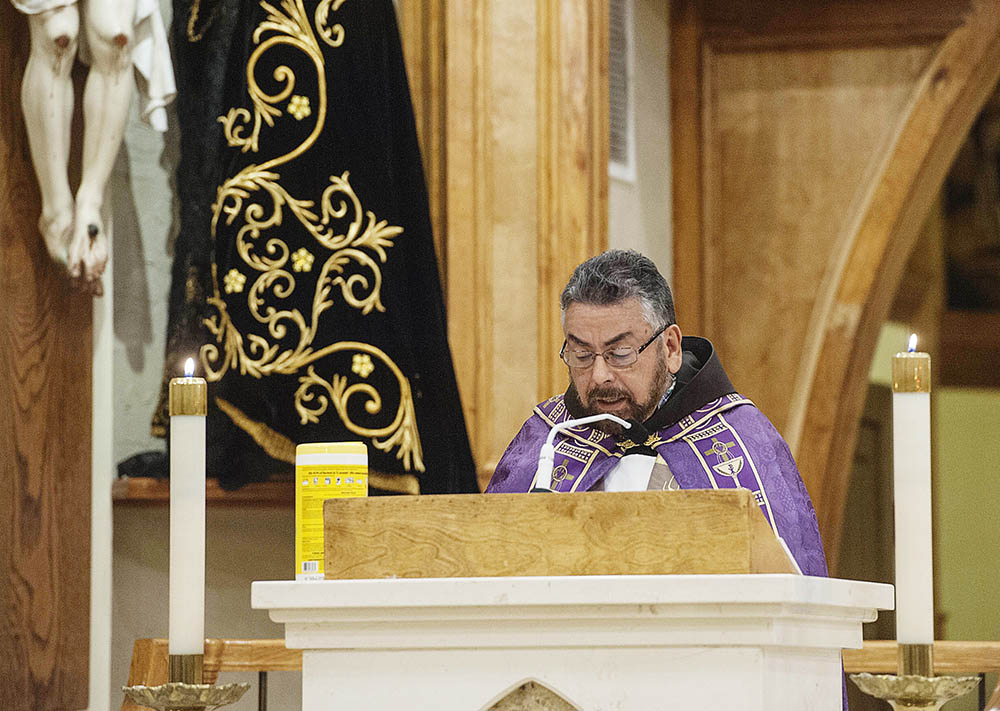
Beyond Three Kings Day, COVID has impacted other traditions in Tyler’s Hispanic community. One of these is Las Posadas, a Mexican Christmas tradition where parishioners recreate the holy family’s search for lodging for the birth of Jesus.
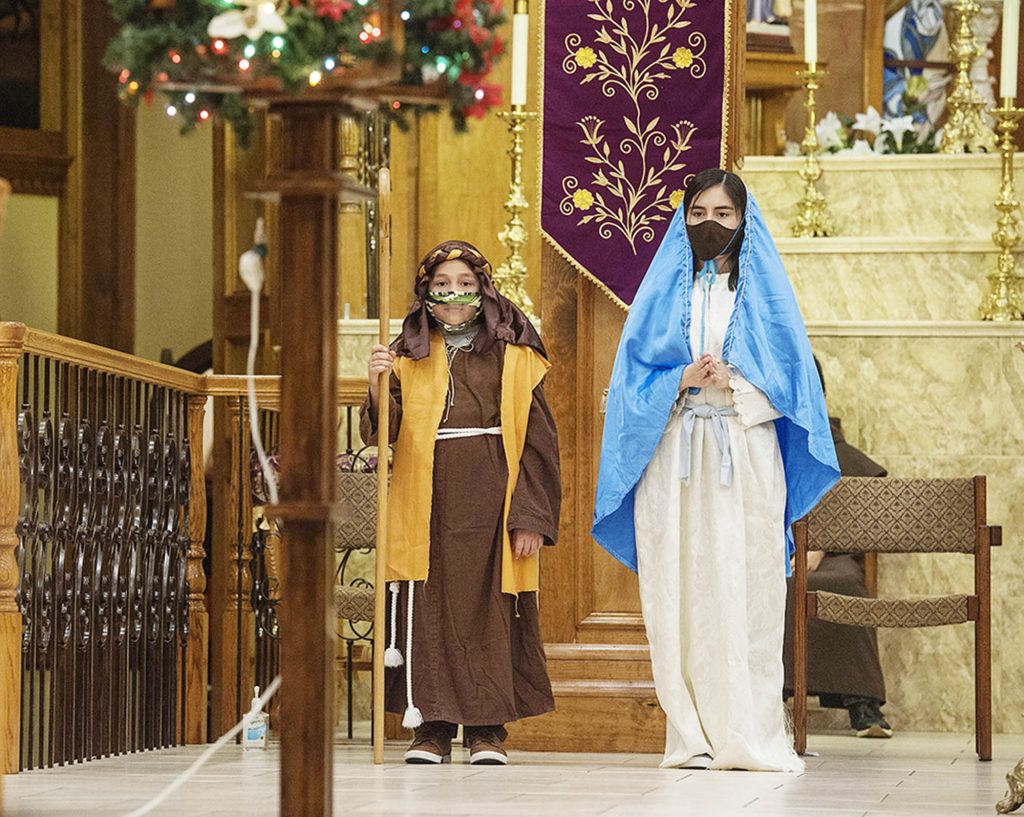
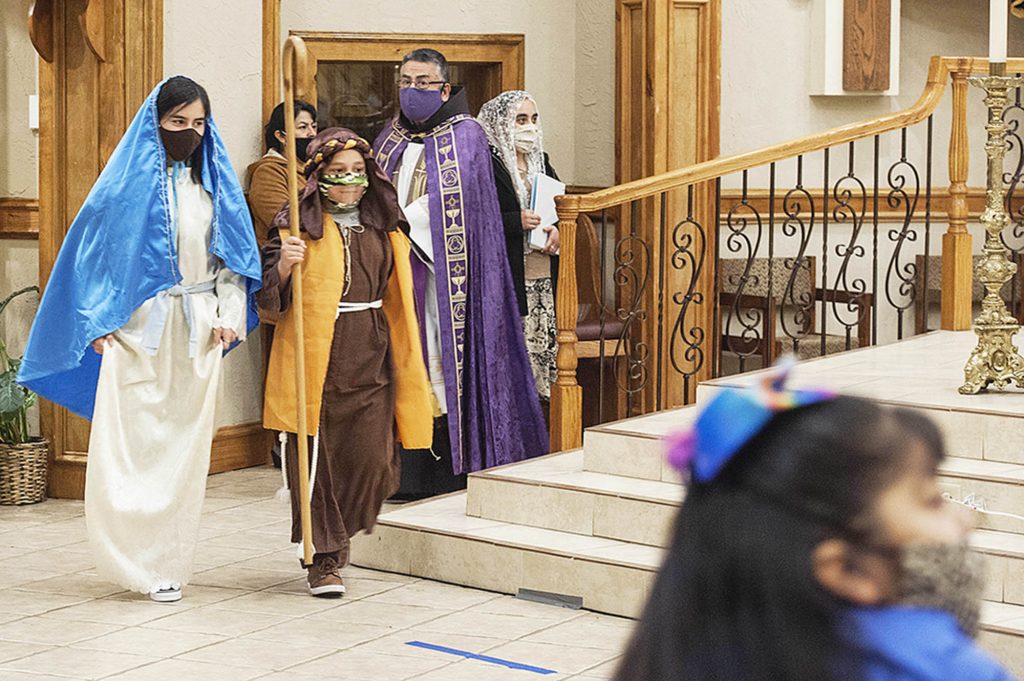
At St. Peter Claver Parish in Tyler, Las Posadas is usually celebrated with a procession each night from Dec. 16 to Dec. 24. In the streets around the church, a large group walks behind children dressed as the holy family, singing songs and searching for an inn.
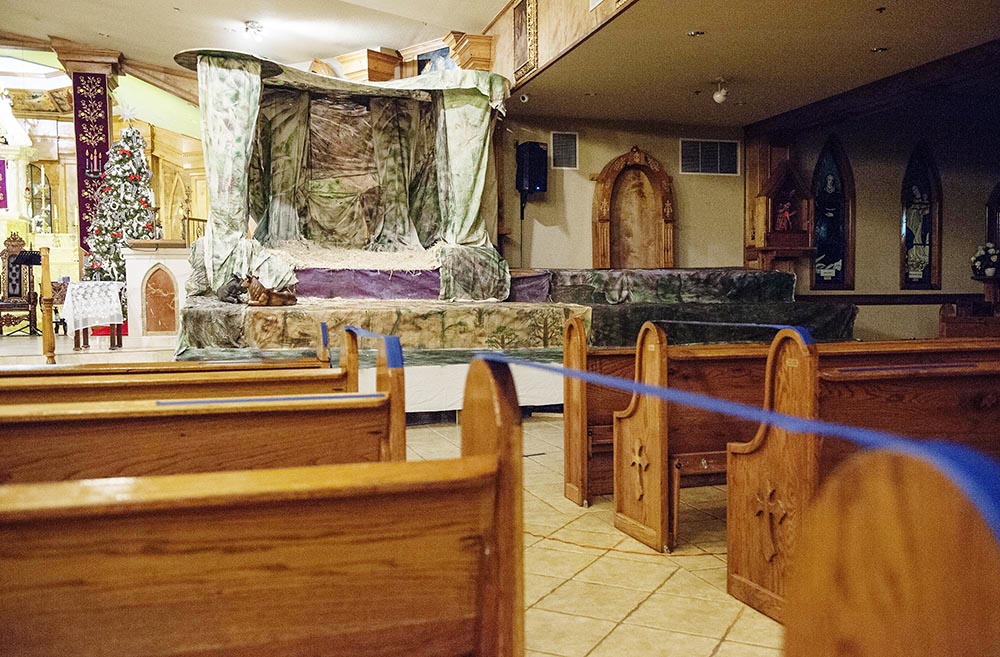
📷Sarah A. Miller
Hundreds typically gather together for the nightly processional, church service, meal and piñata for the children. This year, the celebration was reduced to just the service inside the parish’s shrine of Our Lady of Mount Carmel. The services were attended sparingly in person by families wearing face masks and separated by empty rows of pews, blocked off by blue painter’s tape. However, between 600-1,000 people tuned in online to view the Facebook Live feeds each night.
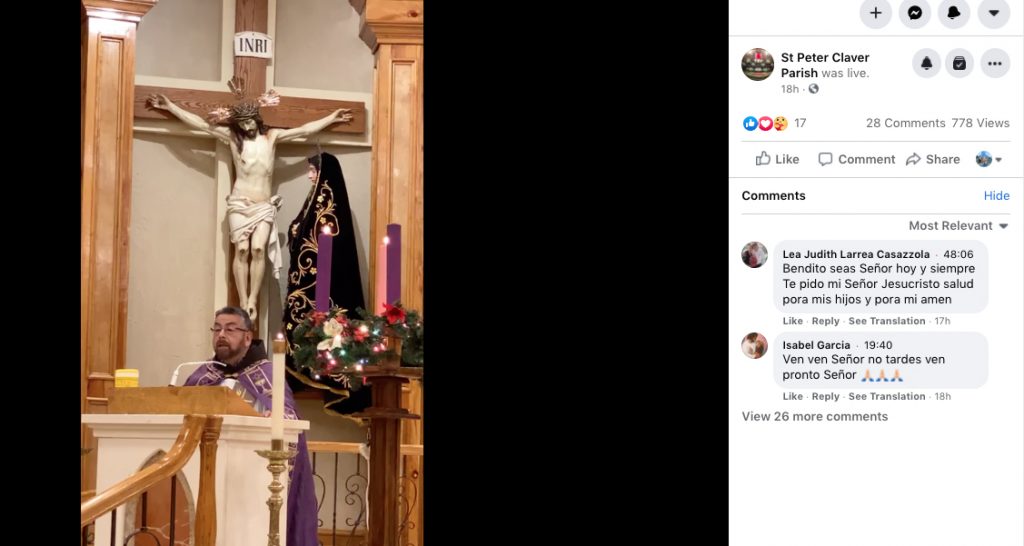
“A lot of our parishes across the diocese have been live-streaming and it has been very beneficial for our parishioners who are not able to be physically present due to the pandemic,” said Peyton Low, a communications liaison with the Diocese of Tyler. “It’s been a blessing to see our parishes and people embrace this technology so that everyone can still worship together as we face the realities of COVID.”
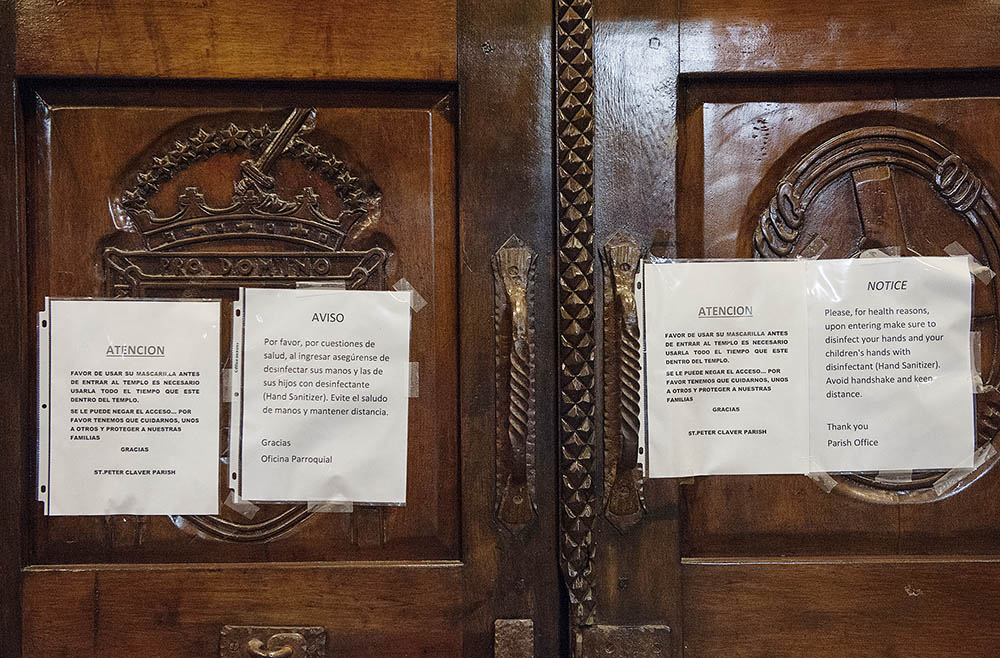
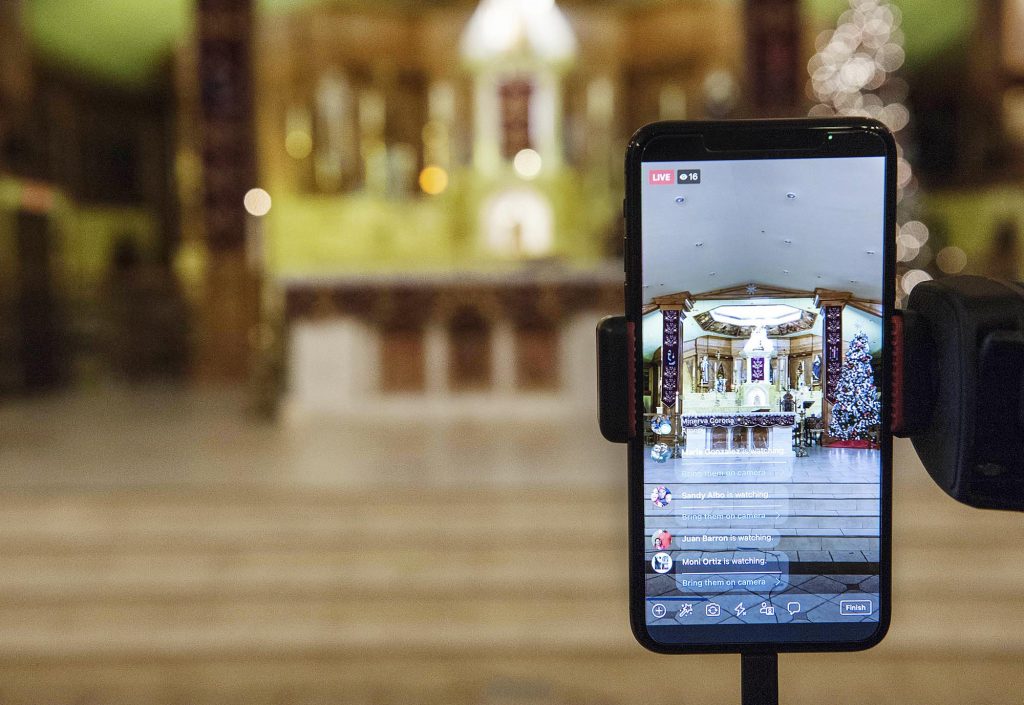
Catholics in Tyler have been adhering to health guidelines for many months now. Most Reverend Joseph E. Strickland, Bishop of the Roman Catholic Diocese of Tyler, issued instructions on July 3 requesting all to wear face masks or coverings while attending services within the Diocese of Tyler.
Read the instructions here in English or Spanish.
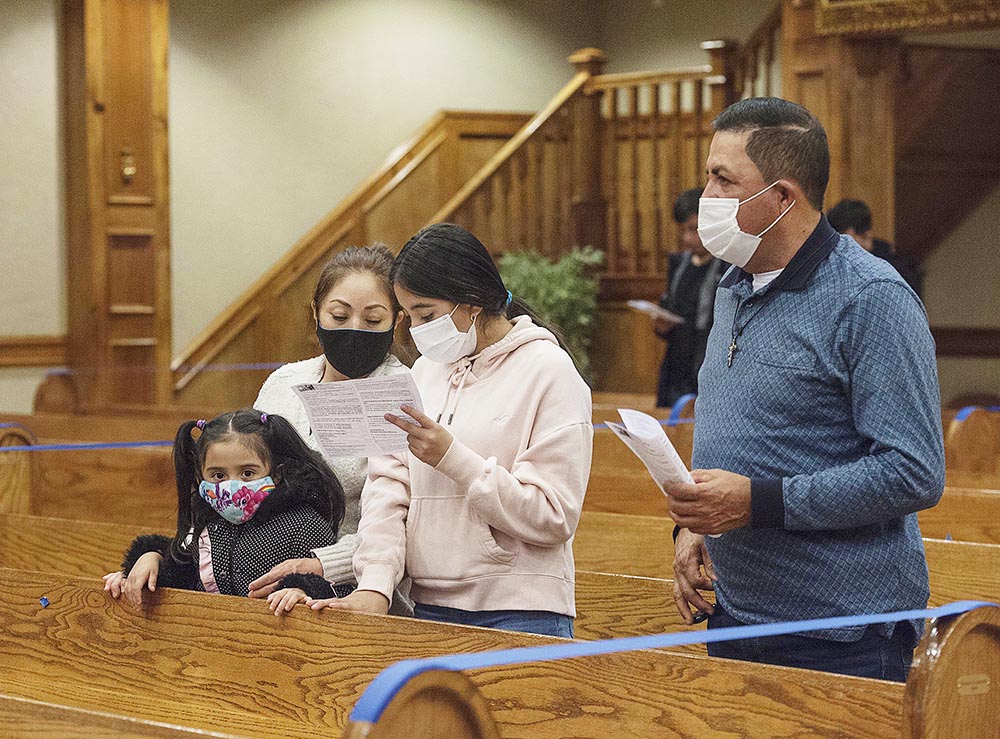
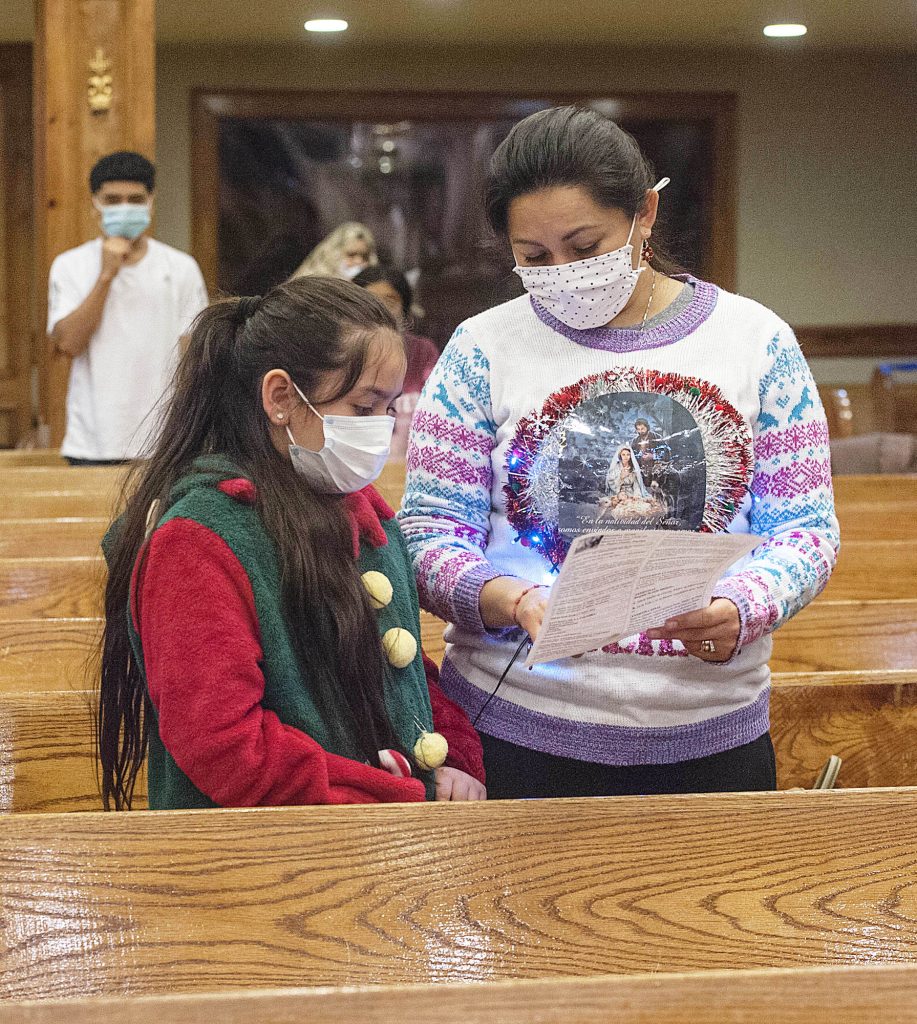
Reaching a wide audience
Natalia Urquiza hopes the popularity of her events and philanthropy work with Corazones Unidos spreads beyond the Hispanic community and into the hearts and minds of all Tyler residents. She wants her events to be inclusive of all community members, not limited to Mexicans only.
Urquiza dreams of a day when local events are supported and attended by all of Tyler, including Black and white residents; however, cultural misunderstandings have created setbacks at public spaces in the city.
In 2017, La Tiendita held a Day of the Dead celebration at Bergfeld Park scheduled from 10 a.m. to 7 p.m,. in hopes that the centralized location and day-long celebration would draw a diverse crowd.
The event was well attended, but after 5 p.m., police told the organizers that neighbors near the park complained about the noise. They had to shut down early.
During another event, a kermes to raise money for a funeral which was held with permission at a salon was stopped by the health department because food was being sold without a certified kitchen.
“We are always praying that we have no problems,” Urquiza said.
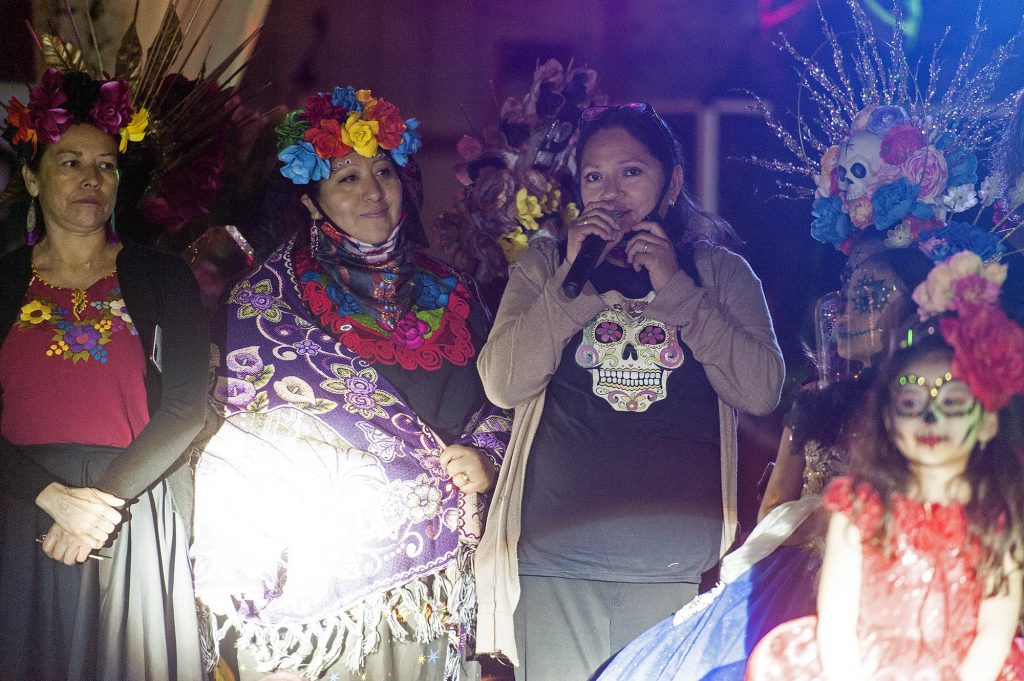
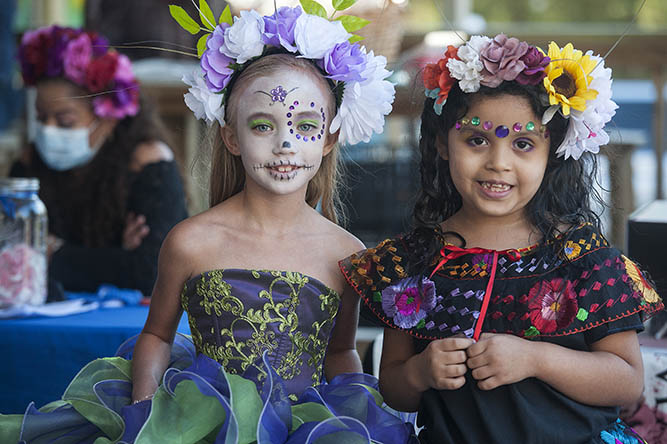
Despite setbacks, Urquiza is moving forward with her goal of reaching a wider audience. One goal is to create an English version of La Tiendita Magazine so more people can read about the charity work of Corazones Unidos and the businesses that support their efforts. The Spanish magazine can be accessed here.
“I want to put in in English so everyone can understand how nice it is to help those in need, and that we don’t have to be millionaires to help.
Little by little, the goal is reached.”
Sarah A. Miller is an independent editorial photographer and journalist with over 10 years of experience in newsrooms across the country. She lives in Tyler with several roommates and three quirky cats. Sarah loves being a community storyteller and getting to document the everyday lives of people in East Texas.
Love what you're seeing in our posts? Help power our local, nonprofit journalism platform — from in-depth reads, to freelance training, to COVID Stories videos, to intimate portraits of East Texans through storytelling.
Our readers have told us they want to better understand this place we all call home, from Tyler's north-south divide to our city's changing demographics. What systemic issues need attention? What are are greatest concerns and hopes? What matters most to Tylerites and East Texans?
Help us create more informed, more connected, more engaged Tyler. Help us continue providing no paywall, free access posts. Become a member today. Your $15/month contribution drives our work.







